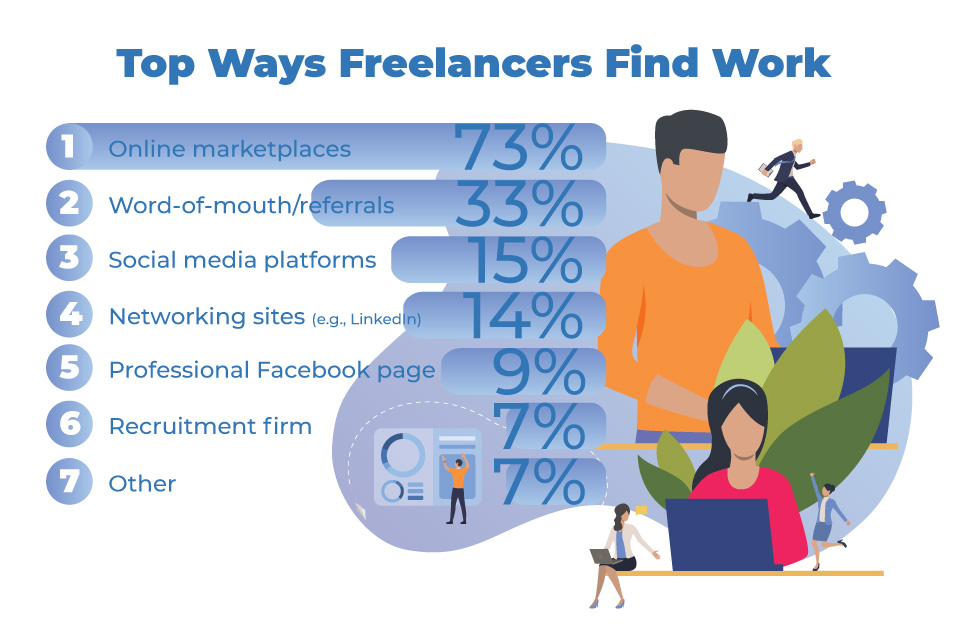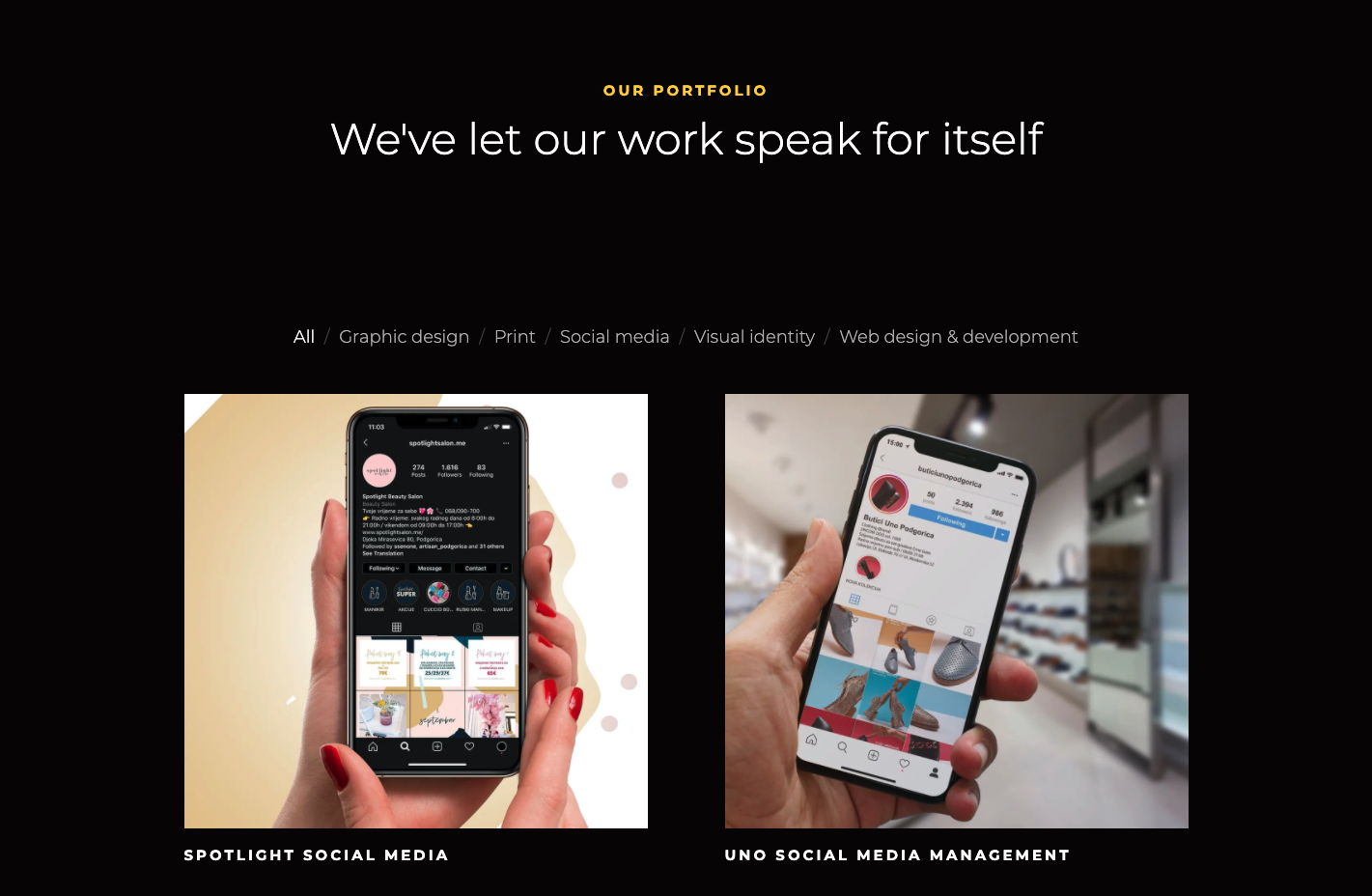So you want to make money as a freelance web developer?
But you’re struggling with finding enough work to pay the bills?
I know exactly how that feels.
You want to achieve financial freedom, be your own boss, and make money coding.
But if you can’t find enough clients to work for, that’s going to stop your freelancing career in its tracks in no time.
If that sounds familiar, you’re in the right place.
In today’s post, Heather Redding will show you 5 simple hacks to getting more freelance web development work – starting right now.
Whether you’re new to freelancing or you have a few years under your belt, you don’t want to miss these tips.
And hey, I’d love to hear your top tips for landing more freelance gigs, too. Share your hacks in the comments section below!
Take it away, Heather!
When you decide to become a freelance web developer, your success depends on how many clients you serve per month. If you get fewer assignments or contracts, then this career may not adequately sustain you.
You need constant work to earn a worthwhile amount of income. You probably quit a full-time, regular job to become a freelance web developer, so your life has to depend on the work you do.
So how do you consistently get enough orders to sustain you and your family in the long run?
Let me walk you through 5 easy hacks to find more freelance work and make more money as a freelance web developer.
#1: Start networking
Do your ex-college mates know that you are now a full-time web developer, or you have kept them in the dark because you want to “live a private life”?
You may not realize it, but your most regular clients could be your friends, schoolmates, cousins, uncles, acquaintances, etc.
Any of these people may be a small business that requires a new website or an upgrade or revamping of an old one.
The moment you mention you are a full-time web developer, they remember they need your skills.
The whole concept behind networking is “tell a friend to tell a friend that I am now a full-time web developer,” and soon your network of potential clients will expand.
If you do not advertise yourself to your immediate family and friends, you are going to forgo some great opportunities.
Don’t be concerned about what they’d think about you. Send emails to your old friends, new friends, relatives, or anyone you can reach out to. Just keep it short and pleasant, and make yourself easily approachable.
They may not have opportunities for you right away, but one or two of them will refer you to a client today, tomorrow, or next year.
You can also check the websites of the people you know and suggest a small upgrade where necessary. This way, they don’t have to commit to a large-scale project with you right away.
If you deliver top-notch results on a small project, they are more likely to think of you when it’s time for bigger updates.
While at it, you should also network with other professionals in your field. If one of you gets more work than he can handle within the stipulated time, the rest can assist.
On the other hand, you also want to hunt with other professionals outside your field. That way, they can refer you if they get work outside their niches.
For example, a web content creator is one professional you should work hand in hand with.
#2: Provide top-notch quality
The only way you are going to retain a client is by consistently delivering high-quality web development work.
No matter how intensely you build your network, each client would look elsewhere next time if you deliver a poor job.
This applies even to close friends or relatives; if you do not deliver value for their money, they have no reason to be loyal.
You may be the best freelance web developer they know (and they are most likely not looking for the best one), but you need to do a fantastic job that is at least 80% generally appealing and likeable.
You may not have won any awards yet, but that doesn’t mean you cannot deliver cool designs that are easy to navigate.
When you deliver quality work to a client, and you sense they are super satisfied and happy, you can have the courage to ask them to recommend you further so that you can continue to expand your network.
#3: Create a stellar portfolio website
How do you prove to potential clients that you are up to the task?
Especially if you are just starting out, your word may not be enough.
To show potential freelance clients that you are the right person for the job, you need to showcase your skills, experience, and knowledge by setting up a professional portfolio website.
Your portfolio simply helps you build the brand you want to become over time. It is your freelance CV.
A freelance portfolio website is not something you create in a day, but rather a gradual build-up as you continue to earn new clients and engage in new kinds of projects.
The more new skills you learn, the more you feather your nest.
Some of the online marketplaces where you can take on jobs or projects for showcasing include:
- Glassdoor
- Upwork, or
- Freelancer.com
Read next: How to Create an Upwork Profile: 14 Tips to Get Hired Faster
Sometimes it can be tricky to land your first gigs to showcase on your portfolio website.
If it feels difficult to find paying gigs right off the bat, it’s perfectly OK to offer your help for free.
But remember: your skills are valuable nevertheless. Hence, don’t build anything too complex for free. Keep it simple and quick, so that it’s just a teaser for landing more work.
Ideally, you want to find someone you know who needs a new website or a redesign of an existing one.
You can also do small projects for local charities and include them in your portfolio. Visit local schools, hospitals, or small businesses and offer to work on their websites.
Your portfolio should target the right audience and clientele. You should be able to convince the clients that you are the right person for web development work.
In short, do not go about piling up the list of your achievements. Stick to the most relevant capabilities. As a web developer, it won’t be very helpful to let your audience know that you are a fiction writer as well.
The portfolio should be neat and appealing, not confusing. With a strong portfolio, you do not need to waste your time verbally persuading a potential client to hire you.
You can also demonstrate your expertise and knowledge through social media posts. Start a Facebook page, for instance. Visit Quora and answer questions related to your niche.
If you have a blog, fill it up with the right information and keywords that will attract the right audience.
Related: How to Build a Freelance Web Developer Portfolio Website: Step-by-Step Guide
#4: Stick to your niche
There are times when it pays much better if you are a carpenter, painter, and plumber at the same time.
But when it comes to certain freelance careers, it’s not advisable to appear as someone who can do everything.
It raises eyebrows because only a quake tends to be a Jack-Of-All-Trades but master of none.
You should specialize and let your clients know what exactly you are best at.
When you are willing to do everything, you pass across as greedy for money.
As they say on the road, you should stick to your lane. Find what you are best at in the field of web development and do it with passion and dedication.
It is best to stand out from the crowd by focusing on your skills.
Sure, it helps if you are a programmer who knows something about everything on web development. But you will be more productive and sought after if you become an expert in particular areas.
People have specific needs, and they are generally more specific when they advertise or look for the right person with the right solution.
#5: Watch out for the latest web development trends
As you consider your niche, take into account the current trends in the ever-changing digital landscape.
When you keep tabs on the latest web development technologies and trends, you’ll easily figure out what most clients are currently looking for.
For instance, consider the fact that nowadays, many business websites gravitate toward the “mobile-first” approach.
You may have a client who doesn’t understand the difference between a mobile-friendly site and a mobile app.
As a professional, you should know that the website and app UX cannot be used interchangeably.
However, your client might think that simply copying your website design into an app might be good for staying on brand—and set the app up for failure.
A client wants to know how tech-savvy you are by demonstrating the difference between the old and the new best practices.
Most of your clients are clueless about what exactly they need for their businesses. They need assurances from you that you are on top of things, as far as the latest developments are concerned.
If you cannot convincingly answer some of their questions or respond adequately to their concerns, the level of confidence takes a nosedive.
Therefore, never stop learning. The more you know, the better opportunities you will get.
Summing it up: How to find more freelance web development work
Even if you are new to freelancing, finding your first freelance gigs doesn’t have to be difficult.
As you ponder how to get more freelance web development work, don’t overthink it.
Follow the tips above, and always ensure you deliver in time whenever you land a job.
Because the truth is: the thing that puts off clients the most is a freelancer who promises to get the job done by a specific date only to fail.
With that said, find a way to organize your time and work from day one. Also, be realistic when you get a project. Don’t take on more work than you can handle.
Only take up a job if you’re confident you can deliver on time if you wish to get more work through each client’s referral activities.
Now, are you ready to find your next freelance gig?
Head over to Mikke’s step-by-step guide on how to become a freelance web developer for some hands-on tips.
And if you’ve already finished some freelance jobs, please share your experience with others in the comments section!
What challenges have you faced and overcome as a freelance web developer? What’s the #1 lesson you have learned so far? Share your thoughts below!
Heather Redding is a content manager for rent, hailing from Aurora, Illinois. She loves to geek out writing about wearables, IoT and other hot tech trends. When she finds the time to detach from her keyboard, she enjoys her Kindle library and a hot coffee. Reach out to her on Twitter.



